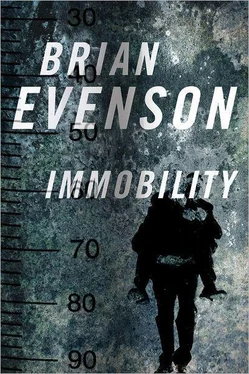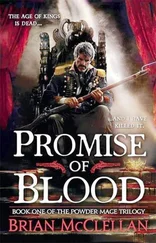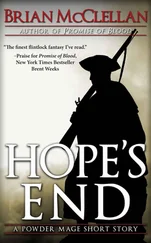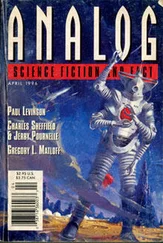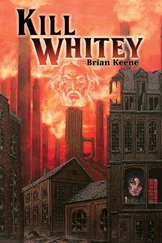How long had he been stored? Was his brain sufficiently awake now that he could trust it? He closed his eyes, trying to capture and organize the bits and scraps that beat around his skull.
And why hadn’t he remembered he was a paraplegic? Even if his mind hadn’t remembered it, wouldn’t his body still have known? Wouldn’t it have done something to prevent him from throwing himself off the table?
He patted his leg, but couldn’t feel anything in it. He tried to move it, failed. Why, now that he’d been told he was paralyzed, didn’t it feel right? Was he in denial?
The problem, he began to realize, wasn’t just trying to assemble the little he thought he knew into a narrative—it came in determining which of the memories were real, which were things he’d dreamed or imagined.
HE MUST HAVE FALLEN ASLEEP, must have dozed off again. The next thing he was conscious of was the sound of male voices, the feel of their hands as they lifted him off the floor. He saw three of them, one holding his legs and one lifting each side of his body. Or, rather, four: the original technician had returned as well, though he kept his distance, standing back by the door.
Horkai winced at their touch, groaned.
“Awake, then?” asked one of them, a ruddy man with a wispy beard and a pockmarked face. He didn’t wait for a response.
They balanced him on the edge of the table a moment, muttering back and forth to one another, then gathered him up more securely. The ruddy man came around behind him. He worked his arms under Horkai’s arms and locked his hands over Horkai’s chest. The other two made a kind of chariot for his hips and legs. They were larger than the ruddy man. One was black haired and the other brown haired, but otherwise they were seemingly identical in appearance: brothers, maybe twins.
“Still getting your bearings?” the ruddy man asked from behind him, his breath warm against Horkai’s ear. “Can’t imagine what it’s like to be frozen for so long. Nor what it’s like waking up.”
“It’s terrible,” Horkai said.
“Of course it is,” said the ruddy man affably. “But you’re awake now,” he said. “Oleg, Olaf,” he said. “Might as well do this. He’s not getting any lighter. Down to the end of the table and off it on the count of three.”
Horkai braced himself, but it didn’t seem to lessen the pain when they lifted him. The ruddy man’s arms felt like they were cutting him in two, each line of contact like a band of fire. What’s wrong with me? he wondered. How can I make it stop?
“Knus, get the door for us, will you?” said the ruddy man, his voice abrupt with effort. “It’s the least you can do.”
“All right, Rasmus,” the technician said, and Horkai watched him pull the door open. The others, grunting, lumbered awkwardly across the room, maneuvering him through the door and out.
Beyond the door was an access hall. It was wide and long, the floor made of concrete that was weathered and cracked. The walls, concrete as well, were falling apart and roughly patched, holes covered with warped half sheets of plywood smeared with tar. The ceiling was also plywood, a series of layered sheets, the gaps filled with something that looked like tinfoil but had a bluish sheen. It was propped up here and there with lengths of pipe, some still gray with grease, others mottled with overlapping ovals of rust.
“Doesn’t look much like it used to, does it, Josef?” said Rasmus. “We’ve done our best to keep things going, but I’m the first to admit it hasn’t always been easy.”
“We’ve kept up the important things,” said either Olaf or Oleg.
“The things that matter,” said the other brother.
“Time, the great destroyer,” said the first. And both brothers laughed.
“How long has it been?” asked Horkai.
Rasmus’s steps stuttered, and Horkai dipped in the brothers’ arms as they tried to compensate, the jostling causing him a fresh burst of pain.
“Knus didn’t brief you?” asked Rasmus. “He was supposed to.”
Horkai had to wait a moment for the pain to subside before he could respond. “Knus and I had a bit of a misunderstanding,” he admitted.
“I heard you tried to kill him,” said Oleg or Olaf, raising an eyebrow.
“We all heard that,” said Rasmus. He smiled. “Should we be worried, Josef?”
He acted as if he were joking, but there was an undertone in his voice that made Horkai wonder. But why would they be nervous about me? he wondered. I’m paralyzed.
The hall ended in a sort of garage door painted brick red. The paint had peeled away in places to reveal bare metal. A large hand crank was to one side.
“Olaf, help me hold him,” said Rasmus. “Oleg, take care of the door.” Rasmus inclined his head to Horkai, gave a tight smile. “Josef, we’ll have to go outside. It’s not as bad as it was before—not here, anyway—and in any case, we won’t be out long. But we’ll still have to move quickly. There’s no reason to be nervous.”
“Why would I be nervous?” asked Horkai.
“Each minute out there is a day we won’t live,” said Olaf.
“That’s the spirit,” said Rasmus, but whether to him or to Olaf, Horkai couldn’t say.
He might have continued to question them, but at that moment the black-haired brother let go. Olaf grunted and planted his feet, while Rasmus tightened his arms around him and pulled back. Horkai screamed and passed out.
* * *
WHEN HE CAME CONSCIOUS AGAIN, it was to hear Olaf say:
“—not so tough now, is he?”
“Looks can be deceiving,” Rasmus responded.
Oleg had managed to roll the door up five feet or so. He rolled it up another foot, then turned around. Horkai groaned, as if just regaining consciousness.
“Awake? As time goes on, you’ll probably feel less pain,” Rasmus said.
“Probably?” Horkai said.
Rasmus smiled. “No promises,” he said. “To be honest, we don’t know all that much.”
“Why not?”
“Door’s open, time to go out,” said Rasmus. “Action not words, friend. Olaf, you’ll have to walk backwards. I’ll let you set the pace. Oleg, close up quickly and then catch up with us.”
They moved forward and through the opening. Outside was a ravaged landscape, ruin and rubble stretching in every direction, the ground choked in dust or ash. Remnants of buildings, mostly collapsed. The sky was bleak with haze, and a wind blew, hot and indifferent. All of it was pervaded by a strange, unearthly silence. Olaf, Horkai suddenly realized, was holding his breath. Looking up, he saw Rasmus had his mouth closed tight, too. He heard a crunch as the metal door slid down behind them, then Oleg’s footsteps as he came rapidly alongside Olaf, helping take Horkai’s weight.
They traveled maybe fifty yards, maybe slightly less, Olaf and Oleg moving backwards crablike and quick, Rasmus pushing them forward until they came to a web of metal girders and shattered glass. Beside it, behind a broken stretch of pediment, was a hole and within it a set of granite steps leading down into darkness. It was into this that they took him, down to a thick metal door and through it, down a winding rusted iron stairwell and into the remnants of an old library, mostly a wreck now.
The bottom level was lit by a strange glow, an artificial light of some kind that seemed to emanate from the walls themselves. The light was pale, just enough to see by but little more. He saw a crowd of perhaps two dozen people, all middle-aged, who began to whisper back and forth as they came in. Rasmus nodded to them, but quickly moved past and to a scorched wooden door on the other side of the chamber.
The room inside was the same, the walls aglow, though perhaps more feebly so. It contained a desk with a single chair behind it. Three chairs faced it.
Читать дальше
